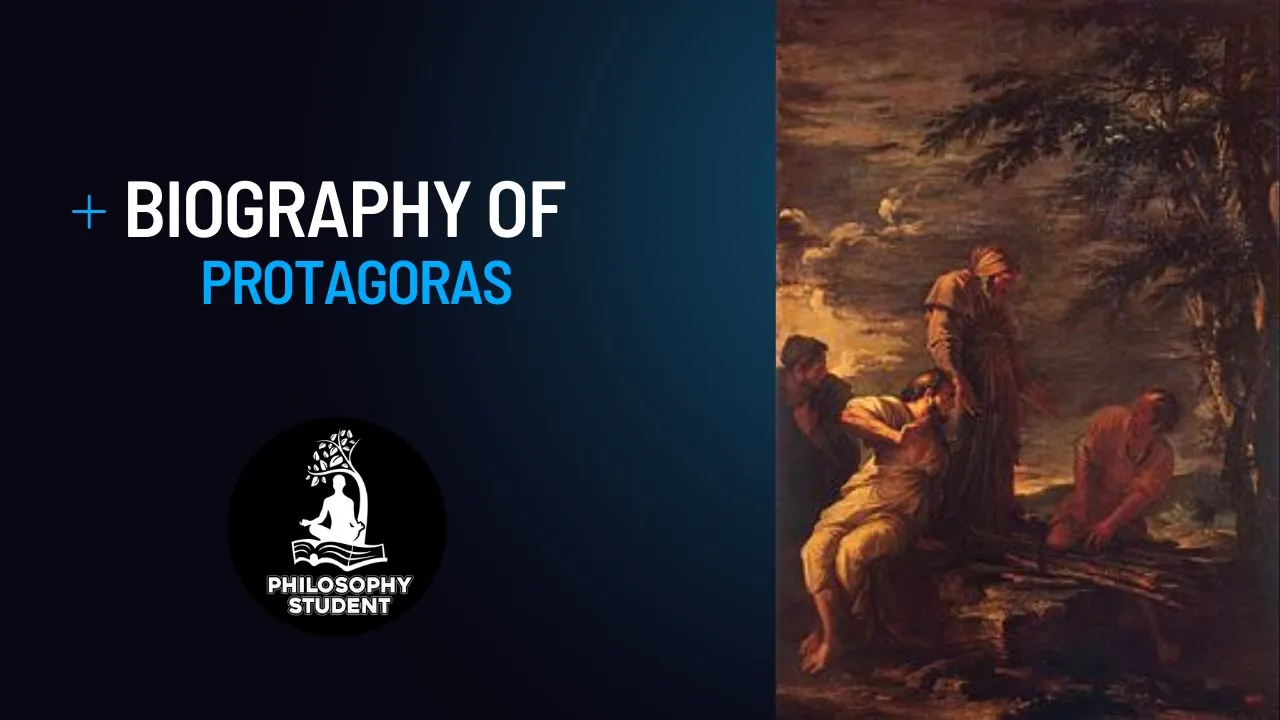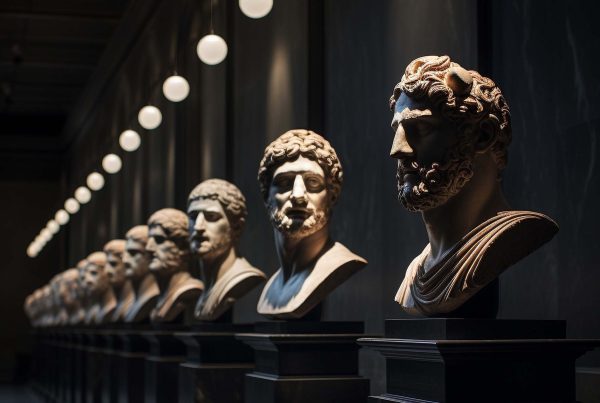The subject of an eponymous Platonic dialogue, Protagoras was a Sophist whom Plato credits as the originator of the role of the professional sophist (one who reasons with complexly fallacious arguments). Plato also noted Protagoras’ most controversial and (still) most widely quoted aphorism: “Man is the measure of all things.” This Plato understood to mean that truth is not absolute but is that which people generally deem as true. This may well be the crux of Protagoras’ epistemology, which held that truth was relative to the individual and not based on some objective “given” independent of human perception and interpretation.
Born in Abdera, Thrace, Protagoras may have begun his working life as a porter. At least, it was reported that the philosopher Democritus saw him carrying a load of wood tied with cord. The skill with which Protagoras had tied the load together—seemingly with geometric precision—led Democritus to remark that the man was a mathematical genius. Accordingly, he took Protagoras into his household and tutored him in philosophy. Eventually, Protagoras became renowned in Athens and was befriended by no less a figure than Pericles.
In point of fact, Protagoras cared little about mathematics and had only skepticism about applying theoretical mathematics to the physical world. At best, he believed mathematics was an art—with little practical purpose. He was far more interested in ethics, virtue, and political life and debated over whether virtue could be taught. He was interested in education generally and pragmatic education in particular, including the teaching of how to properly manage one’s own affairs and household as well as how to lead and manage public affairs.
Like his fellow Sophist Prodicus, Protagoras placed special emphasis on the correct use of words and contemplated the gap between their literal meaning and the author’s (or speaker’s) intention. He was interested in formulating a methodology for teaching usage that could be applied to the creation and interpretation of laws and other written documents in the Athenian courts. According to Diogenes Laërtius, Protagoras ultimately compiled a taxonomy of speech acts, including assertion, command, question, answer, and so on. He was lso a teacher of rhetoric and argumentation, who was among the first to compete in the rhetorical contests associated with the Olympic games.
His theory of argumentation was that, on any issue, there are two opposing logoi (arguments), and this is associated with the philosophy of relativism, which he is often credited with originating and for which Plato, in Protagoras, condemns him.
As a philosopher of religion, Protagoras was either agnostic or atheistic. Ascribed to him is the ultimate agnostic position, reportedly articulated in a lost work titled On the Gods: “Concerning the gods, I have no means of knowing whether they exist or not, nor of what sort they may be, because of the obscurity of the subject, and the brevity of human life.”
The date of the philosopher’s death is conjectural at about 420 BC, when he was approximately seventy years old.




































